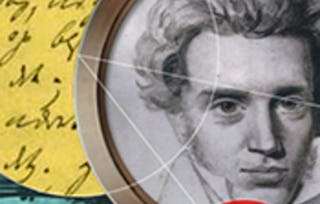This course examines how the idea of "the modern" develops at the end of the 18th century in European philosophy and literature, and how being modern (or progressive, or hip) became one of the crucial criteria for understanding and evaluating cultural change. Are we still in modernity, or have we moved beyond the modern to the postmodern?

The Modern and the Postmodern (Part 2)

The Modern and the Postmodern (Part 2)

Instructor: Michael S. Roth
45,264 already enrolled
Included with
370 reviews
Skills you'll gain
Details to know

Add to your LinkedIn profile
See how employees at top companies are mastering in-demand skills

There are 10 modules in this course
What's included
2 readings
With a focus on Civilization and its Discontents, we examine how Freud’s theories tried to expose profound instincts as they appeared in daily life.
What's included
4 videos1 reading
A reading of Virginia Woolf’s modernist novel To the Lighthouse shows how giving up the search for the “really real” can liberate one to attend to the everyday.
What's included
4 videos1 reading1 peer review
We go back to Ralph Waldo Emerson and forward to Ludwig Wittgenstein to consider how forms of life and language games need to foundation to be compelling.
What's included
4 videos1 reading1 peer review
Through a consideration of Max Horkheimer & Theodor Adorno along with Michel Foucault, we confront the philosophical effort to escape from totality in order to understand the politics of control.
What's included
4 videos1 reading1 peer review
A very brief consideration of how artists are responding to the loss of foundations to produce work that redefines art.
What's included
2 videos
We examine short pieces by Judith Butler and Slavjo Zizek to understand how identities get formed (and performed) in a world without foundations.
What's included
4 videos1 reading1 peer review
Review of all the thinkers we have studied in Parts I and II of the class, along with some complementary material.
What's included
4 videos
After postmodern playfulness, or alongside it, we see the resurgence of the pragmatic impulse to return philosophy to real human problems.
What's included
3 videos1 reading1 peer review
What's included
1 peer review
Instructor

Offered by
Explore more from History
 Status: Preview
Status: PreviewWesleyan University
 Status: Preview
Status: PreviewUniversity of Virginia
 Status: Preview
Status: PreviewUniversity of Virginia
 Status: Preview
Status: PreviewUniversity of Copenhagen
Why people choose Coursera for their career

Felipe M.

Jennifer J.

Larry W.

Chaitanya A.
Learner reviews
- 5 stars
83.24%
- 4 stars
12.43%
- 3 stars
2.70%
- 2 stars
0.54%
- 1 star
1.08%
Showing 3 of 370
Reviewed on Jun 13, 2021
This is a great philosophy course because you get written assignments, which is necessary in any philosophy course in my opinion.
Reviewed on Aug 11, 2021
The course is ultimately wonderful to comprehend a unique insight into the literary traits of the PostModern Era. Thanks a lot .
Reviewed on Aug 5, 2020
really enjoyed the course. When are they going to d a course on late existentialist thinkers? Some of the readings were unavailable.

Open new doors with Coursera Plus
Unlimited access to 10,000+ world-class courses, hands-on projects, and job-ready certificate programs - all included in your subscription
Advance your career with an online degree
Earn a degree from world-class universities - 100% online
Join over 3,400 global companies that choose Coursera for Business
Upskill your employees to excel in the digital economy
Frequently asked questions
To access the course materials, assignments and to earn a Certificate, you will need to purchase the Certificate experience when you enroll in a course. You can try a Free Trial instead, or apply for Financial Aid. The course may offer 'Full Course, No Certificate' instead. This option lets you see all course materials, submit required assessments, and get a final grade. This also means that you will not be able to purchase a Certificate experience.
When you purchase a Certificate you get access to all course materials, including graded assignments. Upon completing the course, your electronic Certificate will be added to your Accomplishments page - from there, you can print your Certificate or add it to your LinkedIn profile.
Yes. In select learning programs, you can apply for financial aid or a scholarship if you can’t afford the enrollment fee. If fin aid or scholarship is available for your learning program selection, you’ll find a link to apply on the description page.
More questions
Financial aid available,
¹ Some assignments in this course are AI-graded. For these assignments, your data will be used in accordance with Coursera's Privacy Notice.

